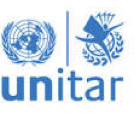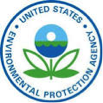 Organization: United Nations Environment Programme (UNEP)
Organization: United Nations Environment Programme (UNEP)
Headquarter: Nairobi, Kenya
Homepage: https://www.unep.org
About the organization: Since its inception in 1972, UNEP has been the global authority that sets the environmental agenda, promotes the coherent implementation of the environmental dimension of sustainable development within the UN system and serves as an authoritative advocate for the global environment. UNEP’s mission is to provide leadership and encourage partnership in caring for the environment by inspiring, informing, and enabling nations and peoples to improve their quality of life without compromising that of future generations. UNEP works on delivering transformational change for people and nature by drilling down on the root causes of the three planetary crises of climate change, nature and biodiversity loss, and pollution and waste including e-waste.
 Organization: United Nations Institute for Training and Research (UNITAR)
Organization: United Nations Institute for Training and Research (UNITAR)
Headquarter: Geneva, Switzerland
Homepage: https://unitar.org
About the organization: UNITAR is a UN organization, founded in 1963. Its mission is to “develop the individual, institutional and organizational capacities of countries and other United Nations stakeholders through high-quality learning solutions and related knowledge products and services to enhance decision making and to support country-level action for overcoming global challenges.” In doing so, UNITAR pays particular attention to issues related to climate change, chemical management, waste management, and circular economy. With respect to e-waste, the institute is a partner in the production of a series of documents presented at https://ewastemonitor.info, one of which is the annual Global E-waste Monitor. The homepage contains many links to valuable documents regarding pollution due to all sorts of chemical waste as well as themes related to the 2030 Agenda for Sustainable Development.
 Organization: International Solid Waste Association (ISWA)
Organization: International Solid Waste Association (ISWA)
Headquarter: Rotterdam, The Netherlands
Homepage: https://www.iswa.org
About the organization: ISWA is an independent and non-governmental association and its mission is “the promotion and development of sustainable waste management worldwide”. On this basis “ISWA’s vision is an Earth where no waste exists. Waste should be reused and reduced to a minimum, then collected, recycled and treated properly. Residual matter should be disposed of in a safely engineered way, ensuring a clean and healthy environment. All people on earth should have the right to enjoy an environment with clean air, water, seas and soils. To be able to achieve this, we need to work together.” To achieve this goal, ISWA addresses waste management through nine working groups covering all relevant aspects of sustainable waste management including e-waste, and by publications of the journal Waste Management & Research (https://journals.sagepub.com/home/wmr), the newsmagazine Waste Management World (https://waste-management-world.com/), and a variety of policy and key issue papers. In addition, the homepage contains many links to valuable documents and events related to e-waste. With respect to e-waste, the institute is a partner in the production of a series of documents presented at https://ewastemonitor.info, one of which is the annual Global E-waste Monitor. ISWA also organize the ISWA World Congress, which is an annual event that dates back to 1972.
 Organization: Strategic Approach to International Chemicals Management (SAICM)
Organization: Strategic Approach to International Chemicals Management (SAICM)
Headquarter: Geneva, Switzerland
Homepage: https://www.saicm.org
About the organization: SAICM was adopted by the First International Conference on Chemicals Management in Dubai in 2006 and is a policy framework to promote chemical safety in all segments of society around the world. The background for the formation of the organization is clear from its homepage. “The consumption of chemicals by all industries and modern society’s reliance on chemicals for virtually all manufacturing processes make chemicals production one of the major and most globalized sectors of the world economy. Acknowledgement of the essential economic role of chemicals and their contribution to improved living standards needs to be balanced with recognition of potential costs. These include the chemical industry’s heavy use of water and energy and the potential adverse impacts of chemicals on the environment and human health. The diversity and potential severity of such impacts makes sound chemicals management a key cross-cutting issue for sustainable development.”
SAICM was developed by a multi-stakeholder and multi-sectoral Preparatory Committee and supports the achievement of the 2020 goal agreed at the 2002 Johannesburg World Summit on Sustainable Development. SAICM’s overall objective is the achievement of the sound management of chemicals throughout their life cycle so that by the year 2020, chemicals are produced and used in ways that minimize significant adverse impacts on the environment and human health.
 Organization: Japan Society of Material Cycles and Waste Management (JSMCWM)
Organization: Japan Society of Material Cycles and Waste Management (JSMCWM)
Headquarter: Tokyo, Japan
Homepage: https://jsmcwm.or.jp/international
About the organization: JSMCWM was originally established as The Japan Society of Waste Management in March 1990. This society has pursued various research activities around proper management of waste and promotion of recycling to respond to the demands of the time in anticipation of resource circulation. These activities have resulted in expansion of the legal system regarding waste management so that construction of sound material-cycle society has become major challenge for Japan and subject for JSMCWM.
The main mission of the Society is to contribute to better solutions to solid waste management by providing its members opportunities for exchanging findings, experience, and expertise. JSMCWM has currently over 4000 members, is internationally open, and extends invitation to experts world-wide to join the Society. E-waste is addressed as a solid waste-management issue, where home appliances, computers, mobile phones and similar items are dealt with.
 Organization: The Global E-waste Statistics Partnership (GESP)
Organization: The Global E-waste Statistics Partnership (GESP)
Headquarter: Collaboration between the three founding organizations
Homepage: https://globalewaste.org
About the organization: The following paragraphs were selected from the GESP homepage. “Building on the partnership on Measuring ICT for development, in 2017, the International Telecommunication Union (ITU), United Nations University – Sustainable Cycles (UNU-SCYCLE) and the International Solid Waste Association (ISWA), joined forces to create the Global E-waste Statistics Partnership as a way of addressing the challenges associated with managing e-waste. Since January 2022, Sustainable Cycles (SCYCLE) become a Programme under the United Nations Institute for Training and Research (UNITAR). Today, the GESP is now a Partnership managed by the ITU and UNITAR-SCYCLE.
The objectives of the Partnership are to monitor developments of e-waste over time, and to help countries to produce e-waste statistics. The initiative will inform policymakers, industries, academia, media, and the general public by enhancing the understanding and interpretation of global e-waste data and its relation to the Sustainable Development Goals (SDGs). The goals of the GESP are to: 1) Collect and improve worldwide e-waste statistics; 2) Enhance the understanding and interpretation of global e-waste data; 3) Improve the quality of e-waste statistics by guiding countries and building national capacity through e-waste statistics trainings; 4) Raise awareness and communicates the data to the general public and relevant stakeholders.”
The GESP homepage contains a rich library of searchable publications related to a number of topics including e-waste.
 Organization: Environmental Protection Agency (EPA)
Organization: Environmental Protection Agency (EPA)
Headquarter: Washington DC, USA
Homepage: https://www.epa.gov
About the organization: The mission of EPA is to protect the human health and the environment within the United States of America. In doing so, the organization has developed a very informative homepage that all parts of society can access and obtain accurate information sufficient to effectively participate in managing human health and environmental risks. EPA works very seriously on e-waste, and on its homepage there are almost 130000 contributions related to e-waste handling.
Organization: WEEE Forum
Headquarter: Brussels, Belgium
Homepage: https://weee-forum.org
About the organization: The forum was established in 2002. From its homepage, the following information has been extracted. The WEEE Forum is the world’s largest multi-national centre of competence as regards operational know-how concerning the management of waste electrical and electronic equipment (or ‘WEEE’, for short). It is an international association representing forty-six producer responsibility organisations across the globe. Together with our members, we are at the forefront of turning the extended producer responsibility principle into an effective electronic waste management policy approach through our combined knowledge of the technical, business, and operational aspects of collection, logistics, de-pollution, processing, preparing for reuse and reporting of e-waste. Our mission is to be the world’s foremost e-waste competence centre excelling in the implementation of the circularity principle. The WEEE Forum has designed and developed a number of platforms and software tools, allowing the producer responsibility organisations to benchmark their operations and have access to key data and intelligence.
